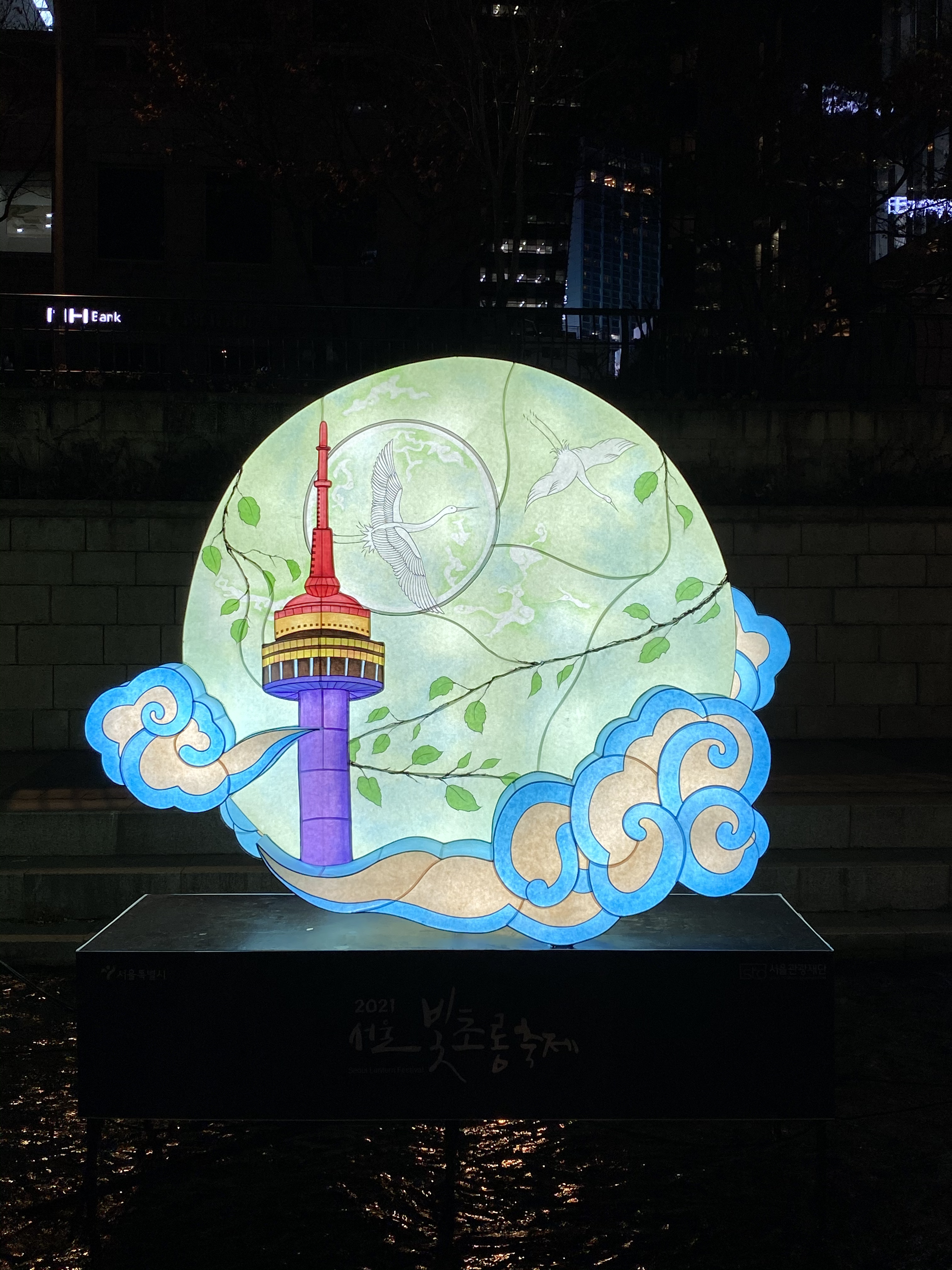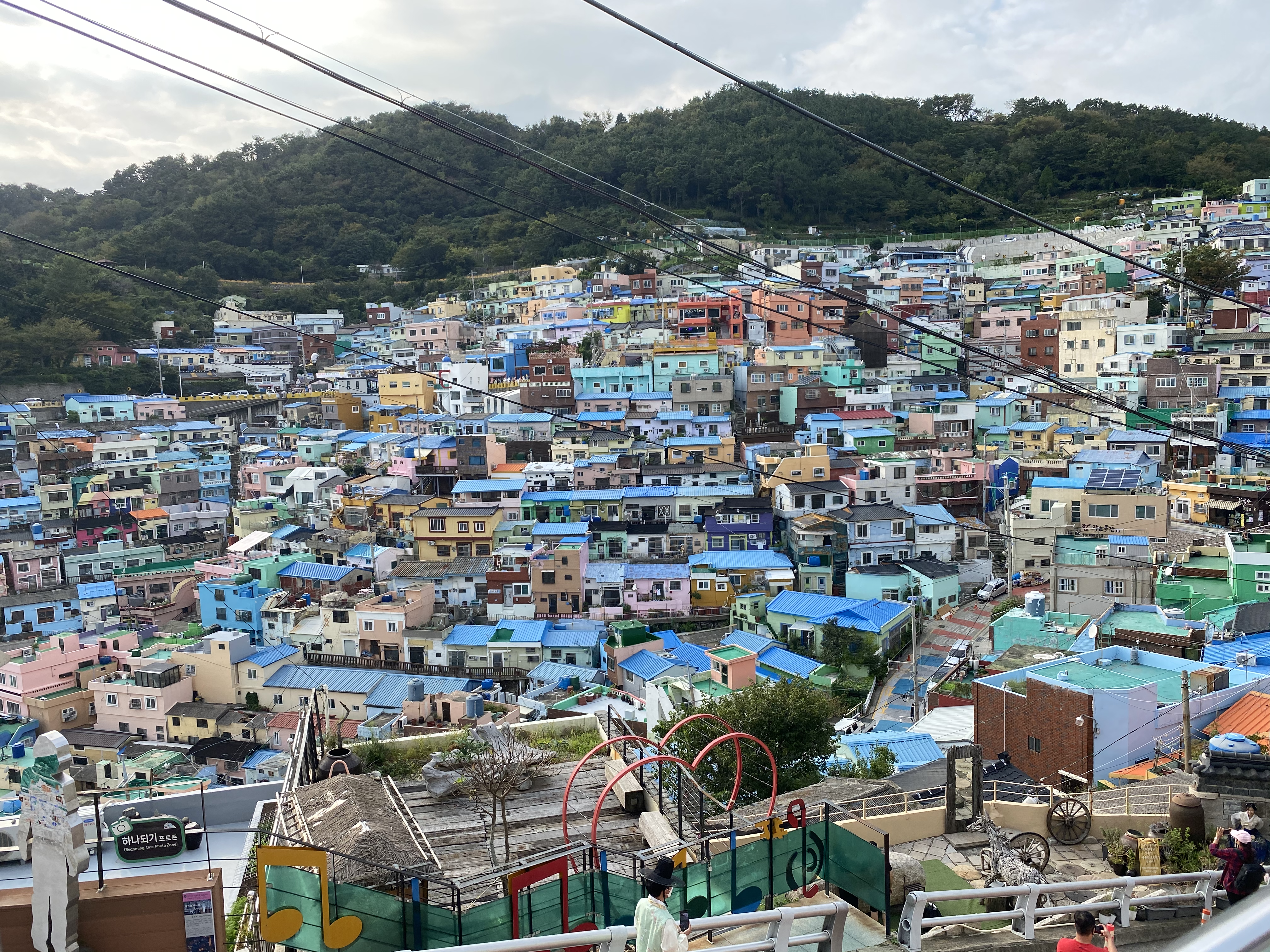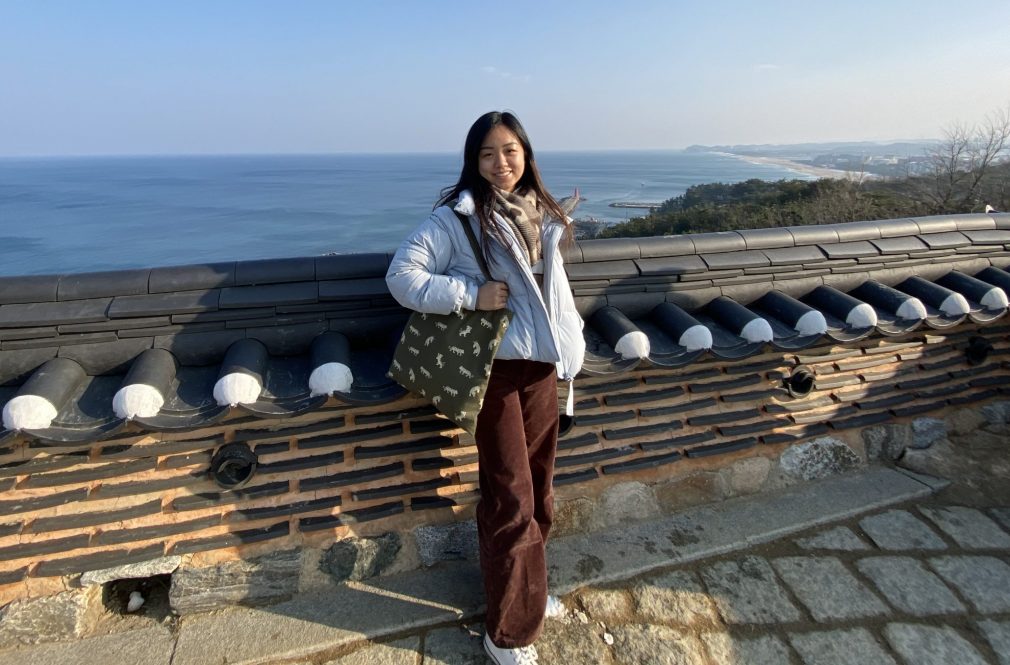Tell us a little bit about your experience in South Korea. For starters, why did you choose Sogang University?
My global studies major requires me to study abroad in my area of regional focus so I knew I had to choose a country in East Asia. I had taken the Korean language for two years at UConn before I decided to apply to study abroad. After finishing the last level of Korean offered at UConn, I decided the best way to fully immerse in learning both the culture and language is to study abroad. I learned a little about Korean culture through my Korean classes and Korean entertainment but I wanted to experience the culture first hand.
Overall, I would say my experience in South Korea was really great. Despite some strict COVID-19 rules, Sogang University still tried their best to provide an immersive and educational experience to students while living on campus. Compared to America's standard of living, the costs in South Korea were less expensive and I think were better quality. Our classes were online due to COVID-19 but my friends and I made sure to stay immersed in the culture by organizing time to travel and make friends. I made friends not only from South Korea, but also internationally.
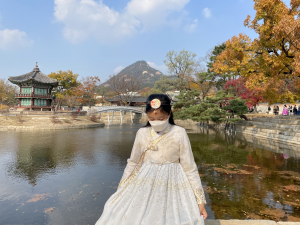 What did you gain from the experience?
What did you gain from the experience?
From studying abroad I would say I gained an array of experiences. Personally, I definitely grew to be more independent. I was born and raised in Connecticut so going to UConn wasn't too big of a step for me. However, traveling abroad for almost six months really opened my eyes to the world. I think I learned how to better face problems and stay organized.
While abroad, there was always the dilemma of exploring South Korea or staying in to study. The benefit of COVID-19 was that we were able to travel outside the capital city because we didn't have to attend classes in person. I definitely became more open minded through my journey in South Korea.
Hearing the Korean and other international perspectives from people that I met taught me to become more outgoing. Coming back, I felt like I was less afraid to try new things. Studying abroad in Korea made me want to return to South Korea again to learn more about its culture, language and society.
Professionally, I also learned many things. I learned how to think creatively and communicate better. During my study abroad sometimes things didn't always go as planned. So, I had to rethink how I would approach situations to adjust. This is an important skill to have professionally because unexpected issues can arise which require you to think outside the box.
On top of the journalism skills I already have, I learned how to communicate more efficiently because I met people from all over the world. At times, there would be language barriers, but I was able to overcome them with the right kind of problem-solving. Additionally, flexibility and open mindedness became habitual throughout my study abroad trip. All of these experiences both indirectly or directly contribute to the development of both my personal and professional skillsets.
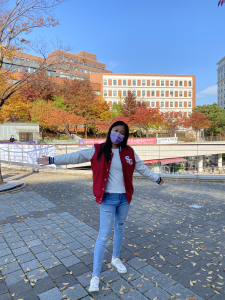 What unique Experiential Global Learning opportunities did you encounter during your time?
What unique Experiential Global Learning opportunities did you encounter during your time?
During my study abroad experience I was able to volunteer with the Seoul police. Due to COVID-19, the Seoul police needed volunteers to make sure people were wearing masks and social distancing effectively. I volunteered with the station to experience something outside of my comfort zone and I was curious to see where it would lead me.
So, throughout the month of October for 3 days a week, some volunteers and I would walk around Seoul asking people to social distance and put their masks on. Although it sounded like a trivial activity, I was able to get to know police officers and meet friends.
I believe that it is truly a rewarding experience for students to incorporate studying abroad in their honors and academic experiences because you get to learn and see things that are outside of what you are used to. It's a great experience to take honors-level classes and research projects through the honors program at UConn, but it is a completely different experience to do something outside of your comfort zone and challenge yourself both professionally and personally.
I can be sure to say that I am not the same person that I was before I went to study abroad and I mean that in the best way possible. I think I really began to understand how to approach life more thoughtfully and with greater appreciation. If you're an honors student, always or at least occasionally take the opportunity to challenge yourself with different experiences so you can learn from them. This is why I highly recommend studying abroad.
What would you say is your most memorable moment from the trip?
I think the most memorable moments from my trip have to be from the HUG buddy program that Sogang University organized. Before coming to Korea, I was worried that I wouldn't make many friends because of the limited interactions with COVID-19. Especially with online classes, I thought it would be harder to make friends.
However, the buddy program was designed so that a Korean student was paired with an exchange student. With this, I was able to make friends and learn more about Korean culture more in-depth.
I think due to COVID-19, there was a barrier from experiencing certain activities but the Korean buddies did their best to arrange field trips and lunches for people to get to know each other. Until this day, we still keep in contact!
Other memorable moments can include trips outside of Seoul. The trips outside of Seoul were where I got to practice more of my Korean and find a different side of South Korea. In my opinion, the people were also more friendly.
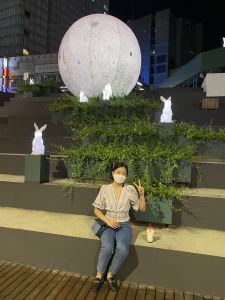 How has Experiential Global Learning helped you to understand and appreciate your program's field of study?
How has Experiential Global Learning helped you to understand and appreciate your program's field of study?
UConn is a large school, but I feel like certain majors are more prominent than others. For my individualized degree of global studies, I felt like there wasn't much variety in the courses I can take at UConn, but through studying abroad I was able to take more specific courses pertaining to my region of focus, which is East Asia.
I learned a lot about Korean history, politics, international relations, philosophy and globalization/development while I was studying abroad. I definitely became even more interested in my global studies major through studying abroad. The courses I took felt like only the beginning when it came to learning about South Korea.
During my time abroad, I would hear how bad COVID-19 has impacted South Korea's domestic economy. This only intrigued me further to learn more about issues in South Korea. Of course, the friends and the sites I visited also left memorable impressions that have inspired me to make it a goal to visit South Korea again.
Are there any tip(s) you'd give for future students participating in a program or those who are just starting to think about an experience?
I would say try to take the whole process piece by piece! I remember I was very overwhelmed at first but once I figured out which schools aligned with my major and which country I wanted to go to, I felt much more at ease. Reaching out to previous students who have studied abroad I think will help because they can answer specific questions about their experience.
I would also say don't be discouraged by the lack of approved courses for both honors and regular UConn students. Many of the courses I wanted to take were not pre-approved so I had to get them approved manually, but the transfer of credits ended up working out well. In my situation, I organized my semesters so that I wouldn't have to take honors courses the semester I studied abroad. My advisors were pretty flexible in listening to my requests about approving my courses.
Also, during my study abroad I tried to focus my honors thesis research about South Korea. Unfortunately due to COVID-19, not many sources were available for my research. However, I was able to get in contact with a few people that I talked to in person that contributed to my research. I think if you are an honors student, planning your honors thesis around a study abroad trip will put an interesting and unique twist to both the study abroad experience and research. I think creating a spreadsheet with steps laid out/programs on a sheet to narrow down schools will be helpful.
In terms of living in a new country wise, I would also recommend solving issues as they come and in steps, because it can be overwhelming when you're overthinking or stressing, which doesn't resolve any issues. I would encourage a strong support system at home to help get through things like homesickness. Personally, I was fine being abroad for a long period of time because I have traveled before. However, for the people that have not traveled before, I can understand why it would be daunting to live in a new country. I always tried to update my friends and family every once in a while when I was abroad. Meeting friends abroad can also help with the homesickness that may occur.


